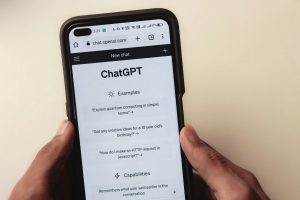A comprehensive study of LLM-based argument classification from LLAMA through GPT-4o to Deepseek-R1
Unlocking the Power of Large Language Models in Argument Classification: Insights from Recent Research
In the rapidly evolving realm of artificial intelligence, the ability of large language models (LLMs) to understand and classify arguments is gaining significant attention. A compelling recent study titled “A Comprehensive Examination of LLM-Based Argument Classification: From LLAMA to GPT-4o and Deepseek-R1” offers valuable insights into how these models perform across different platforms and datasets.
Exploring Model Capabilities and Performance
The research compares prominent LLMs such as GPT-4o, Meta’s LLAMA, and Deepseek-R1, revealing notable differences in their argument classification abilities. For example, GPT-4o demonstrates strong results, achieving an average accuracy of approximately 84.3% on UKP datasets. Meanwhile, Deepseek-R1 outperforms others on the Args.me dataset with an impressive 90.1% accuracy. Although these results are promising, they also pinpoint persistent challenges, indicating that no model is yet perfect at discerning complex argumentative structures.
The Role of Reasoning Strategies
The study underscores the importance of sophisticated reasoning techniques, particularly Chain-of-Thought prompting. By guiding models through step-by-step reasoning, researchers observed significant improvements in classification accuracy. However, some common errors linger, especially when models misinterpret neutral statements as argumentative, pointing to ongoing difficulties in nuanced understanding.
Impact of Prompt Design
An intriguing finding from the research is that simpler prompts sometimes outperform more elaborate ones. This suggests that overly complex prompt structures can inadvertently confuse models, highlighting the delicate balance required in prompt engineering to optimize LLM performance.
Understanding the Limitations
Error analysis reveals that many misclassifications stem from models’ struggles with linguistic subtleties—such as negations or emotional language—that influence the perceived intent behind statements. Addressing these subtleties is essential for improving the reliability of argument mining applications.
Looking Ahead: Future Directions
To advance the field, the authors advocate for developing richer, high-quality argument datasets and refining prompt engineering techniques. Such efforts are critical to enhancing model accuracy and making LLM-based argument analysis more dependable in practical scenarios.
For a detailed breakdown of the study and its implications, visit the full article here. To access the original research paper, see the source [here](https://arxiv.org/abs














Post Comment